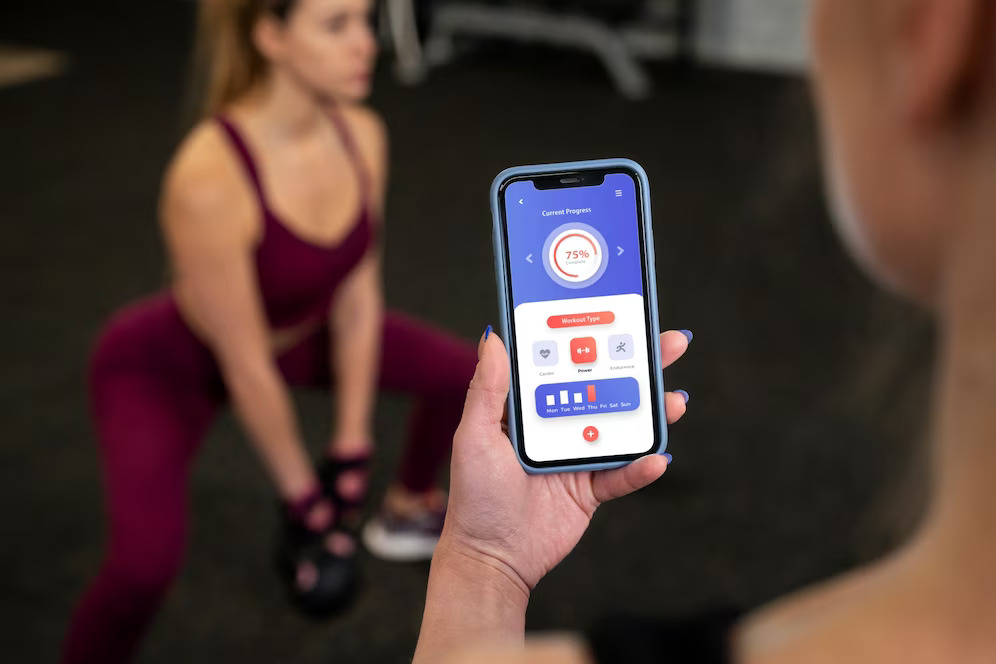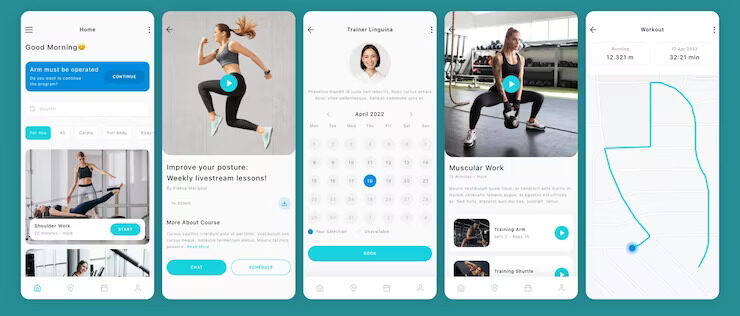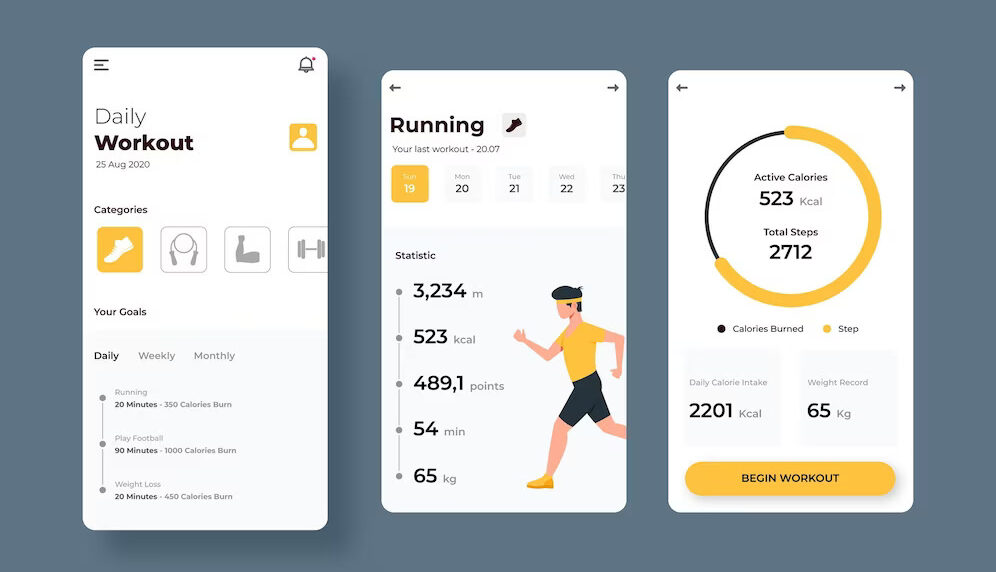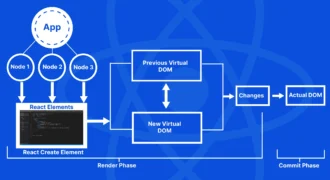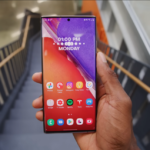Fitness Mobile App Development: Empowering Health and Wellness
The development of digital technologies of the 21st century offers a person to work, study, relax and play sports using the wide possibilities of the Internet. Against this background, sports applications are indispensable for athletes and people leading a healthy lifestyle.
Applications for sports and fitness are installed on a phone, tablet, or other mobile device and serve as a reliable assistant in tracking a person’s physical activity, counting and recording his results. Such applications help keep a training diary and perform many other functions necessary for a physically active person.
Main features of fitness app
The clients can order fitness mobile app development, considering the sports and training the user is engaged in. Also, we work with large gyms and create applications taking into account all the nuances of your business!
What is a sports app?
First of all, a sports application is a program designed to optimize the training process, improve performance, and simplify the monitoring of results. As a rule, each sports application has the following features:
- Athlete’s personal account – a personal space in which records of achievements, plans, etc. are kept;
- Integration with external devices, such as fitness watches or bracelets, laptops, and tablets. The athlete can see all the information from the application without being tied to one device;
- Geolocation determination and real-time operation;
- Sending notifications and reminders – the application can remind the athlete about training, meal schedules, sports supplements, etc.
The main feature of the applications we develop is the satisfaction of the user’s needs. We create apps for iOS and Android for your specific needs. Such an application will become an indispensable assistant in sports.
Varieties of iPhone application development services, similar to Android, are numerous.
The types of sports apps
There are different types of sports apps, and the main difference between them is the purpose of their use:
- The training application draws up a plan considering the weight, height, characteristics of muscle and fat mass, and other physical indicators of the athlete. Such applications are used at home and in the gym, and serve as an alternative to a fitness trainer, whose services must be paid separately;
- Application for tracking the results and activity of an athlete. Calculating your own results and comparing them with past achievements: the most routine process, the need for which often discourages a person from wanting to improve himself physically. Using the developed application for iOS and Android, you can easily control all training indicators: the number of approaches, working weights, distance covered, time spent in the gym, and many other parameters;
- food control app – helps you keep track of the number of calories consumed per day and make a list of products that need to be purchased. You can also add internal channels for communication, where users will share recipes, tips, and recommendations for purchasing new products, describe their energy value;
- wellness applications work in a slightly different way, instead of calculating indicators, the user can view content related to yoga, Pilates, and muscle stretching classes. There are many options for getting online advice from an instructor and for communicating with other users.
Recently, multifunctional applications are gaining popularity. They combine a variety of options for calculating indicators, video content, data storage, and geolocation. However, some athletes do not use many of the features, and consider them redundant. They prefer to install targeted programs that are more convenient to work with on their mobile devices.
The future of mobile fitness app development
The future of fitness mobile apps holds great promise as technology continues to advance and fitness becomes an integral part of our daily lives. These apps will evolve to provide increasingly personalized and interactive experiences, leveraging AI and machine learning to analyze user data and tailor workouts, nutrition plans, and wellness guidance based on individual needs and preferences. Gamification elements will be further integrated to enhance user engagement and motivation, transforming exercise routines into enjoyable and rewarding experiences.
With the rise of wearable devices and health-tracking technology, fitness mobile apps will seamlessly sync with users’ fitness data, offering real-time insights and progress tracking. Additionally, the integration of virtual reality and augmented reality into fitness apps will open up new possibilities for immersive workout experiences and virtual coaching sessions. The future of fitness mobile apps is undoubtedly exciting, as they will continue to play a crucial role in empowering individuals to lead healthier and more active lifestyles.
The future of mobile fitness apps development services is bright and promising, as advancements in technology continue to shape the industry. One of the key trends we can expect to see is the integration of artificial intelligence (AI) and machine learning (ML) algorithms into fitness apps. These powerful technologies will analyze user data, such as workout history, nutrition habits, and biometrics, to provide personalized recommendations and tailored workout plans. AI-powered apps will be capable of learning from user behavior and adapting their recommendations accordingly, optimizing fitness results and enhancing the overall user experience.
Not only will AI provide personalized guidance, but it will also enable apps to track real-time biometrics and make adjustments to workouts in real time, reducing the risk of injury and maximizing performance. Virtual reality (VR) and augmented reality (AR) experiences will also play a significant role in the future of mobile fitness apps. These technologies will allow users to engage in immersive workout experiences, such as exploring virtual environments, interacting with virtual trainers, and even participating in virtual races. This level of immersion will make workouts more engaging and enjoyable, while also providing a sense of connection and community in a virtual fitness world.
Gamification and social interaction will continue to be prominent features in mobile fitness app development. Gamified elements like challenges, rewards, and leaderboards will keep users motivated and engaged in their fitness journey. Social features will enable users to connect with friends, join virtual workout sessions, and share their achievements, fostering a sense of community and support. Integrating wearables, such as fitness trackers and smartwatches, will also be a significant trend. These devices provide users with valuable data about their health and fitness, and integrating them with mobile fitness apps will provide a comprehensive and accurate overview of their fitness journey. Users will be able to track their steps, heart rate, sleep patterns, and more, all within a single app, making it easier to monitor progress and make informed decisions about their health. Finally, personalization and customization will be key factors in the future of mobile fitness app development.
Apps will leverage user data and preferences to generate personalized workout plans, nutrition recommendations, and even mental health exercises. Users can set specific goals, track their progress, and receive personalized feedback and recommendations to optimize their fitness journey. Customizable interfaces will also allow users to personalize their app experience, ensuring a tailored and enjoyable user interface. In conclusion, the future of mobile fitness app development is incredibly exciting. With AI, VR, gamification, wearable integration, and personalization advancements, mobile fitness apps will become even more powerful tools in helping individuals achieve their fitness goals and lead healthier lives. The possibilities are endless, and it’s an exciting time to embrace the future of fitness with these innovative and cutting-edge mobile apps.
In conclusion,
The future of mobile fitness app development promises to revolutionize how we approach our fitness and wellness routines. With the integration of emerging technologies such as AI, VR, and wearables, these apps will provide even more innovative and personalized user experiences. They will harness the power of data analysis to offer personalized recommendations and adaptive exercise plans based on the users’ preferences and biometrics. Whether it’s through immersive virtual experiences or social features that foster engagement and support, mobile fitness apps will continue to motivate and empower users in their quest for a healthier lifestyle. The future of mobile fitness app development is bright. With continued innovation, these apps will play an even more significant role in helping users achieve their goals and lead healthier lives.

